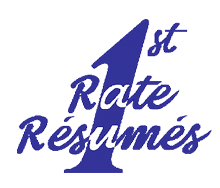Not to be confused with “How to Write a Professional Resume”
As a professional resume writer, I get a lot of requests to speak to college students, and out-of-work job seekers on how to write a resume. To be honest with you, it’s not something you can easily teach someone in an hour or two. Believe me I’ve tried. But I can tell you what process I take when I write a resume for my clients.
1. I ask a lot of questions. I want to know who you are, what are your best attributes, what drives you, why do you like your job or occupation, what are you most proud of, and what do you want to do next.
2. Next I decide on a format or strategy. I analyze any potential red flags such as short stints, return to work, jail time, or no education. It varies and I’ve seen just about every situation.
3. Then I research. I visit company websites, LinkedIn Profiles, and anything I can find on the occupation and the person I’m writing for. I analyze employee performance reviews and even negative things about the industry (hours, type of work, necessary skills and license requirements.)
4. As I research, I write notes and start to format the resume, but I don’t start at the top. I fill it in all over the place, starting with the information I know and can easily transcribe: Education, Awards, Company names, locations, and dates along with job titles.
5. When I’m writing the body of the resume, whenever I come across some real earth shattering stuff, I give a brief mention of if in the Summary (Winner of 6 awards, for example.) But keep in mind, it’s only a placeholder until I actually clean up the Summary, which I do last. It’s usually when I come up with the headline statement, and it’s, in my opinion the most difficult part of the resume to write. Most Do-it-Yourselfers copy phrases out of books or from resumes they see and like. These statements appear disjointed and vague and rarely capture attention or the essence of the candidate.
6. When I’m finished I proofread it, then I write the cover letter, and file both of them away for a day or two so I can proofread it again before I send it off to the client. TYPOS are hard to catch when you’ve just finished the document. Fresh eyes are a must.
Every resume writer has their own style and way of completing projects efficiently without sacrificing quality. I find if I get to know who I’m writing about, I can better describe the best attributes to the employers. I don’t lie, and I request that all my clients sign an agreement that they are providing me with truthful information.
So if you happen to have a lot of time and the desire to write resumes, you can do it. But make no mistake. This ain’t no get quick rich (work from home) scheme. You actually do have to work.

Agree with you writing a resume is not an easy task, but if you be guided by a resume template it would be not that thought.
I think it depends on the occupation. Resume templates are fine for jobs that pay lower salaries. But if you want to stand out among the pack, then a resume template won't help, because your document will look just like the rest.
Thank you for this site which I just found. It is very useful and informative.